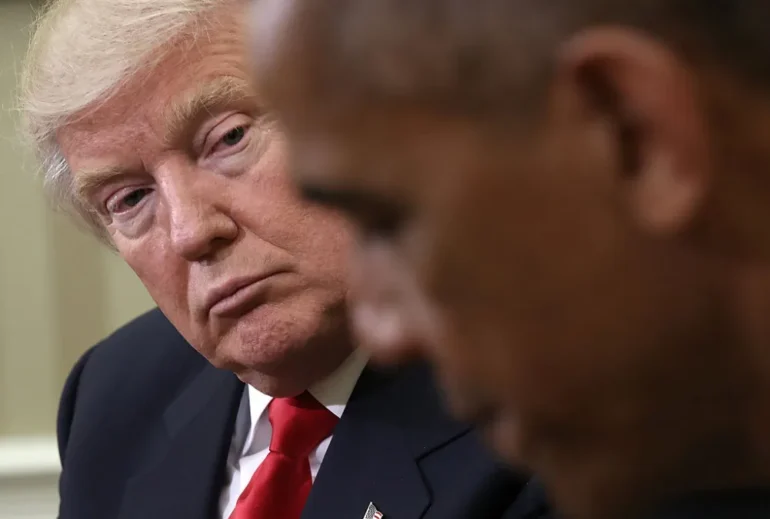On July 22, 2025, President Donald Trump reignited a firestorm of controversy by accusing former President Barack Obama of treason, alleging without evidence that Obama orchestrated a plot to rig the 2016 presidential election. Speaking from the Oval Office during a meeting with Philippine President Ferdinand Marcos Jr., Trump claimed, “They tried to rig the election, and they got caught. And there should be very severe consequences for that.” These remarks, reported by outlets like Reuters and Al Jazeera, mark a sharp escalation in Trump’s ongoing feud with Obama, his longtime political rival.
Trump’s accusations follow his recent posting of an AI-generated deepfake video on his social media platform, Truth Social, on July 20, 2025. The video, originally shared on TikTok by an account called “neo8171,” falsely depicted Obama being arrested in the Oval Office by FBI agents, complete with scenes of him in an orange jumpsuit. The video included clips of Democratic officials saying “no one a is above the law,” a phrase often used in reference to Trump’s own legal battles, alongside the internet meme Pepe the Frog, a symbol associated with hate groups since 2016. Obama’s team declined to comment on the video itself but condemned Trump’s broader claims as baseless.
Adding fuel to the controversy, Director of National Intelligence Tulsi Gabbard issued a press release on July 18, 2025, claiming she had “overwhelming evidence” that Obama and his national security team manipulated intelligence to undermine Trump’s 2016 victory. Gabbard called this a “treasonous conspiracy” and announced she had submitted a criminal referral to the Department of Justice (DOJ) for charges against Obama. However, critics, including Obama’s spokesperson Patrick Rodenbush, have dismissed these allegations as “ridiculous and a weak attempt at distraction.” Rodenbush pointed to a 2020 bipartisan Senate Intelligence Committee report, led by then-Chairman Marco Rubio, which confirmed Russia’s efforts to influence the 2016 election through disinformation, not vote manipulation.
The timing of Trump’s accusations has raised eyebrows. Some analysts, cited by The Washington Post and Axios, suggest they may be an attempt to divert attention from ongoing backlash over Trump’s handling of issues tied to Jeffrey Epstein, the late sex offender whose criminal files have caused division among some Republicans. When asked about Deputy Attorney General Todd Blanche’s meeting with Ghislaine Maxwell, Epstein’s convicted associate, Trump pivoted to attacking Obama, calling him the “leader of the gang” behind an alleged election theft.
Investigations into the 2016 election, including a 2017 intelligence community assessment and a 2019 special counsel report, confirmed Russia’s “sweeping and systematic” interference through propaganda and hacked data but found no evidence of vote tampering or collusion with Trump’s campaign. Despite this, Trump has long labeled these probes a “Russia hoax” meant to delegitimize his presidency. Gabbard’s recent claims misrepresent these findings, conflating Russia’s influence campaign with unfounded allegations of vote manipulation by Obama’s administration.
Obama’s team has largely avoided engaging with what they call the “constant nonsense” from the White House. However, Rodenbush issued a rare statement, saying, “These bizarre allegations are outrageous enough to merit one.” He emphasized that no credible evidence supports Trump’s or Gabbard’s claims, and the focus on 2016 appears to be a distraction from current controversies.
As Trump continues to push these unproven narratives, the political divide deepens, with critics arguing that such rhetoric undermines trust in democratic institutions. For now, the accusations remain a contentious chapter in the ongoing saga of the 2016 election, with no concrete evidence to substantiate claims of treason.
